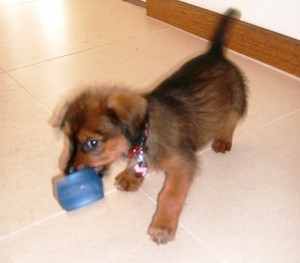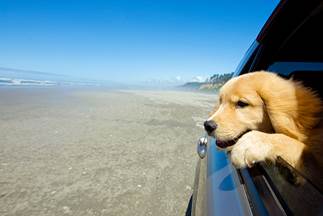Who’s your dog’s best friend?
Does your dog have a BFF? Not all dogs do. Dogs are generally social animals and enjoy a play session with another canine companion. But who’s your dog’s best friend?

Who’s Your Dog’s Best Friend (BFF)
Here are the 5 likely friendships that your dog is likely to have.
(Remember, that all dogs are individuals, so your dog may only like one of these or even none!)
-
Dogs of similar size
Some dogs like all sizes of dogs. Others are timid with larger (or smaller) dogs or may even be aggressive towards some of differing sizes to themselves. When dogs enjoy playing with one another, they tend to gravitate towards dogs of similar size.
Do not assume that all dogs of similar size to yours will be as friendly as your dog is. Sociability depends on adequate socialisation when young, and not every dog is well socialised.
2. Dogs they have grown up with
Many dogs stick to friendships for years. It may be your friend’s dog or it may be one they met in the park when they were young. However it started, your dog has become firm friends with this dog and they are overjoyed to reunite each time they meet.
Do be careful in new scenarios, however, as best friends in the park does not mean sharing dinner! And friendship does not necessarily equal play all of the time. Dogs can be comfortably quiet or even sleepy in their best friend’s company.
3. Family siblings
Dogs who live together often get along well. In fact, many are so bonded to one another that they suffer separation anxiety when apart! Two dogs can be hard work, however, and often two siblings are not considered to be the best choice of pet acquistion.
While most household dogs enjoy one another company, competition for resources can be strong. Some families find this too difficult to live with. Indeed, when problems arise living with two bitches, this can be the hardest behavioural issue to resolve.

4. Dogs of the same breed
Having a mixed breed myself, I am not sure who Chilli dog would consider her breed friends! Many dog owners, however, swear by the breed friendships of their dog. Dalmatians gravitate towards other Dalmatians. Schnauzers recognise another Schnauzer.
Personally, I’ve yet to be convinced of this but I do know that dogs can become quite sensitive to breeds. If they have an unpleasant encounter with a particular breed, they may then generalise their dislike to all dogs of that breed.

5. Dogs of similar energy levels
When you see small dogs playing and enjoying the company of larger dogs (sometimes much larger dogs!), it is often because their energy levels are matched. I know Chilli dog dislikes Greyhounds racing up to her, not because she has had a bad experience of this breed but simply because their energy levels in the park are daunting for her. At home, she would probably have more energy than any Greyhound!
Just because two dogs are having a brilliant play session one moment, does not mean that this will continue for a long time. Energy levels often flag and when one dog begins to annoy the other dog, energy will emerge in other forms e.g. a fight! It is up to owners to supervise all interactions and step in when their dog has had enough.
Your Dog’s Best Friend of All
Your dog’s BFF should, of course, be YOU! If you wish your dog to like you even more than they already do, make sure you are following these tips for making your dog happy. Your dog wants to please you so ensure that you listen to their needs and improve your bond with them.
About the author:
Dr Jo Righetti is an animal behaviour consultant, helping people understand pets. While dealing with common problems such as anxiety or barking, Jo also helps people understand what dogs enjoy and how to improve the human-canine bond.
More best friend activities
Whose best friend? How gender and stereotypes can shape our relationship with pets.
How to have a pawsome road trip with your four-legged friend
The importance of pet play
About the author:
Dr Jo Righetti is an animal behaviourist and owner of pet business Pet Problems Solved where she helps people understand pets. Jo lives with many pets including a mixed breed dog Chilli.






4 comments
Comments are closed.